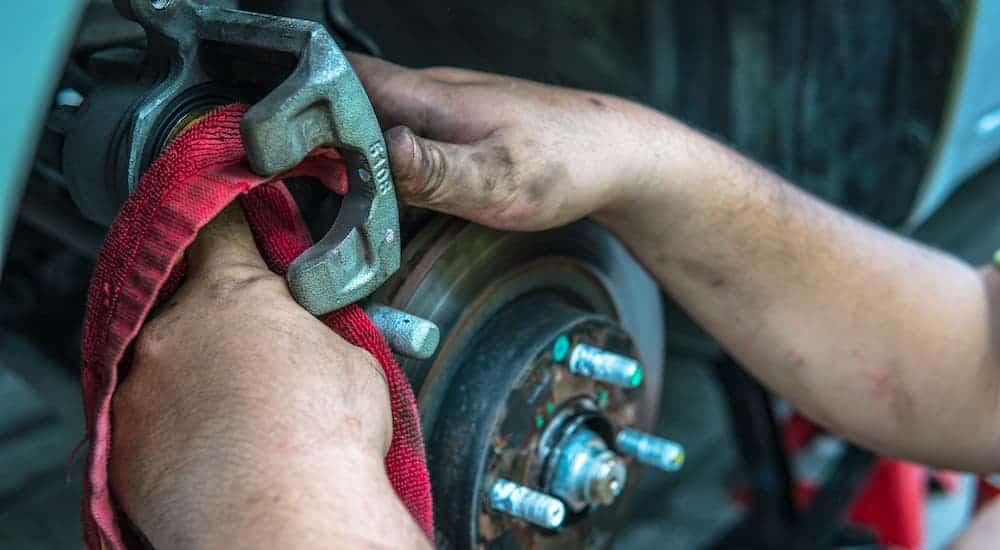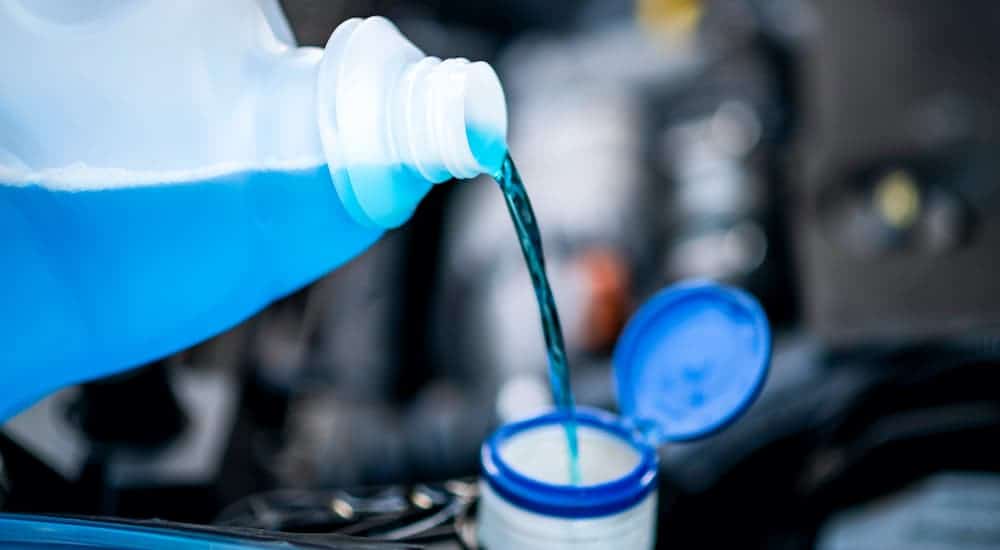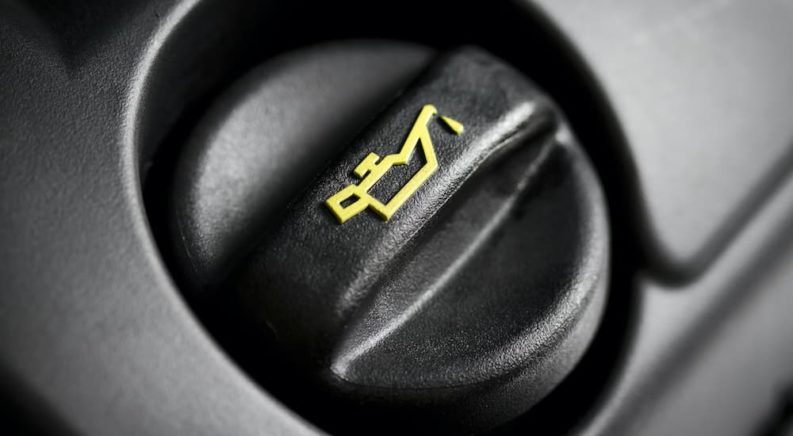Not every car needs to be serviced at the same mileage milestone. Some cars seem like they can go forever without needing serious service, while others need to be pampered a lot more in order to maintain their pristine functionality. BMWs have picked up quite the notoriety for fitting the latter category, but you’re still probably wondering how often do BMWs need to be serviced? It’s typically suggested to service the vehicle at least once per year. Now, as you contemplate heading to a center for BMW service near you for your next checkup, there are a few other important facets of car maintenance and service you need to consider for the German-made luxury vehicle.
BMW Service Tech
For newer BMWs, things are made easy thanks to the Condition Based Service (CBS) dashboard InfoDisplay that helps give owners a heads-up about when they need to service their vehicle and what sort of service needs to be done. Sensors located around the car will give the module a heads-up on when you’ll need to take the car or SUV in for regularly scheduled maintenance. You’ll find this information available in the BMW’s iDrive systems. Some older model BMWs have the Service Interval Indicator in place of the Conditioned Based Service InfoDisplay. Both systems still work the same, informing the driver what needs to be serviced, repaired, or replaced and when.
How Often Do BMWs Need an Oil Change?
The exact mileage for servicing a BMW may vary depending on the type of BMW you have and how often it’s driven. Typically, oil changes are supposed to be administered every 10,000 miles for a BMW, or once every 12 months. Of course, mileage will ultimately determine when the oil should be changed. If you don’t regularly drive your BMW or only put very few miles on it, then the necessity to have the oil changed every year dwindles. For newer model BMWs, it’s important to use full synthetic oil for the engine for maximum performance. Be sure to check the owner’s manual for the kind of oil required for your BMW before putting anything inside the vehicle.
Your next question is likely going to be if you can change the oil yourself in a BMW? The answer is yes, you can. Changing the oil in a BMW is the same as changing the oil in any other vehicle: draining the oil from the pan at the bottom of the vehicle and applying a fresh batch of oil to get the vehicle back in service. However, it’s usually advised that you take your vehicle to a center for BMW service near you to have the oil changed if you’re not very familiar with handling maintenance around the car or changing the oil. It’s also advised you stick to a certified mechanic or dealership if you would prefer more capable hands to take a look at the car.
How Often Do BMWs Need Oil Filter Changes?
In addition to regularly changing the oil in your vehicle, you’ll also need to occasionally replace the oil filter in your vehicle. Instead of just waiting every 10,000 miles to do so or having to ask your mechanic, BMW has their vehicles outfitted with a very handy utility known as the Condition Based Service (CBS) module, which will inform you when it’s time to have your vehicle serviced.
The CBS will give owners a visual notification for service repairs such as oil filter replacements and vehicle checks. In addition to getting the oil changed every 10,000 or so miles, it’s also important to have the oil filter checked and/or changed as well. If you’re unsure about changing the oil filter on your own, you can take it to a service center near you once the indicator informs you that an oil change and filter swap are necessary.
How Often Do BMWs Need the Coolant Flushed?
While most of the BMW service related features and information will be delivered through the iDrive display, it’s still imperative to track and maintain records of your vehicle’s performance and repairs manually. Coolant requires slightly less diligence when it comes to maintenance and refills compared to oil changes and oil filter replacements. Typically, addressing coolant flushing and refills is quite a rarity, as it should only take place every 30,000 miles or so, according to some owner manuals. Usually, coolant operates in a closed system, so it shouldn’t have to be flushed or refilled often. The only time coolant needs frequent replacement is if there’s a leak, at which point you will need to take the vehicle to a certified technician to check for and repair the leak.

How Often Do BMWs Need the Brakes Changed?
According to some BMW owner manuals, brake maintenance should take place alongside regular checkups, maintenance, and repairs for engine intake air filters, oil filter changes, and spark plug replacements. In terms of mileage or months, brake fluid should be changed every 36 months or three years. This typically rounds out to approximately 30,000 miles. Alternatively, if you manage to put 30,000 miles on your BMW before you hit the three-year mark, it would still be wise to have all of the above checked at a service center or by the mechanics at a BMW dealership.
A similar amount of time is required for brake pad changes. When you go in to get the vehicle inspected for a regular checkup, it might be wise to also have the mechanics take a look at the brake pads. Typically they will last you anywhere between 30,000 and 80,000 miles before you have to change them again.
How Often Should BMW Wiper Fluid Be Replaced?
For low-maintenance service such as washer fluid for the windshield, you don’t have to worry as much as some of the other components of the vehicle. Typically you should have the washer fluid checked at every major service change for the car or SUV within 5,000 or 10,000 miles of driving. Moreover, it’s usually best to change up the washer fluid each season if you’re in a location that’s prone to seasonal weather changes.
During bug-season, you may have to use more than usual to get the remains of flying insects and pesky critters off the windshield. During snowy or fall seasons – where the wind is likely to toss gunk at your car during downpours or dirty snow is prone to splat across your hood – you may find that you will use more windshield wiper fluid than usual. So it might be best to stock up on the fluid and fill up the tank before each major seasonal change.
One of the best parts about it, though, is that so long as your vehicle is under warranty, most dealerships or BMW service stations will refill the washer fluid at no extra cost. Of course, you should always check with your local dealership before assuming that they refill washer fluid at no additional cost. We would also recommend keeping a bottle of washer fluid in your car at all times in case you run out and need fluid to wash your window immediately. After all, you may not always be close to a place that can refill for you or where you can buy it.

How Often Do BMW Filters Need to Be Changed?
Filtration systems are essential both to the health of the vehicle and the driver. Yes, without proper filters, a vehicle can be hazardous to its driver and passengers. It’s why it’s imperative to keep the filters replaced and fresh as recommended by the owner’s manual. So how often should you replace the filters in a BMW? Typically, it’s advised to have the ventilation microfilter located in front of the interior fan replaced every two years or during a service check when you reach 20,000 miles. Within three years, or after 30,000 miles, you should also have engine and oil filters replaced, as well as the engine intake filter, which is located inside the air box at the front of the engine.
Service Is Important
Overall, it’s important to take note of the service display information when it informs you that the vehicle is in need of service, and also follow the manual when it comes to the milestones for service repairs. Don’t ignore your routine maintenance if you want to have your car last a long time. If you follow the guides and pamper the BMW as intended, you can keep the vehicle running smoothly for many years to come.

